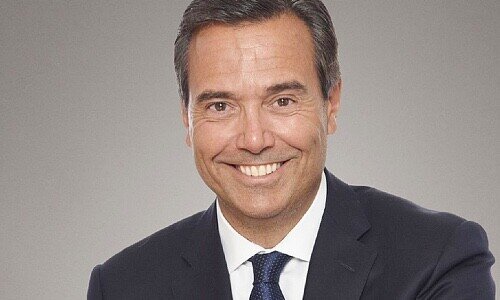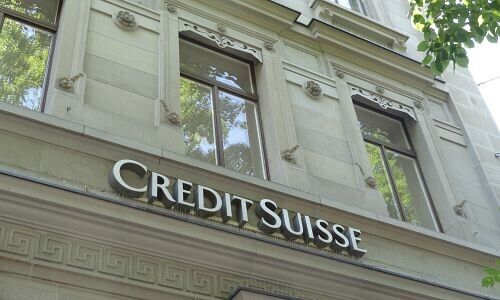There is nothing that indicates that Credit Suisse will reimburse Greensill clients even though new chairman António Horta-Osório once decided otherwise.
«I have been educated to help others, to serve others. [It is] a moral obligation,» António Horta-Osório told the «Financial Times» (paywall) in April, just a few days before shareholders elected him as chairman of Credit Suisse.
That can be interpreted as an empty statement from a long-tenured senior bank executive. But he has shown that he takes his Jesuit college education in Lisbon seriously. And he is probably the last hope for Credit Suisse's Greensill clients, who have already lost money tied up in the funds while facing bank management that has shown little goodwill.
Half Liquidated
The Credit Suisse Greensill funds closed in March were worth about $10 billion and there are indications that about 1,000 of the investors were wealthy individuals, among them Qatar Sheikh Hamad bin Jassim Al Thani.
The bank has managed to liquidate about half of the funds and return some money to investors. But some particularly delicate cases lie ahead given Credit Suisse chief executive Thomas Gottstein has decided to take this approach rather than compensating investors for any losses.
«The fund investors are the ones who sustained damage», Gottstein said in April. The bank would do everything it can to make sure that their demands were met but possible damages or restitution was not discussed.
More Expensive than Thought
Gottstein's new chairman decided differently when he was CEO. When heading Lloyds in 2011, Horta-Osório (pictured below) demanded clients be paid damages related the Payment Protection Insurance (PPI) scandal. Back then, it caused a great deal of consternation, as other institutes adamantly refused to pay any damages at all.

Horta-Osórios decision was expensive for him and Lloyds. After initially calculating it would need to pay back about 4 billion Swiss francs ($4.4 billion) related to PPI, it ended up paying 28 billion. The sum was roughly the same as the bank's entire market capitalization then. And a recent PPI bill as late as 2020 still cut his salary by a third, to £5.9 million.
It was a «matter of principle, not a matter of money», he told the Financial Times.
Rohner's Tactics Seldom Worked
Horta-Osórios predecessor at Credit Suisse, Urs Rohner, followed completely different principles. He quashed any kind of external demand. But the former lawyer's tactics rarely seemed to work. In 2014, under massive pressure in the US, Credit Suisse had to plead guilty for helping clients evade taxes and was fined $2.6 billion. Although the final sum was not as high, Credit Suisse paid more than any other Swiss bank.
In other cases, cases could drag on for years and then pop up at the worst possible moment, just when Credit Suisse was facing class action lawsuits (German only) in the US related to Greensill, finews.com recent analysis shows.
Goodwill Writedown in Asset Management?
Credit Suisse faces a very large bill should the new chairman feel a moral imperative to compensate investors for damages. Observers estimate that potential losses from the Greensill funds could be as much as $2.3 billion. That would be hefty bill when combined with the Greensill losses already sustained and the Archegos $5 billion debacle. Together that adds up to a good $7.3 billion, measured against 2.67 billion francs that Credit Suisse reported in 2020 net profit.
As Reuters calculated, Credit Suisses's common equity Tier 1 ratio would fall to 12.1 percent from 12.8 percent currently if it paid the $2.3 billion out. Any accompanying write-down in asset management would also be pretty uncomfortable. Particularly if one assumed that Credit Suisse would regularly cough up in future for any fund failures. But at least taking that approach wouldn't have an impact on capital.
Not in Danger
Credit Suisse has the ability to raise capital by 100 billion francs though bail-in-bonds in order to absorb the losses. But because they were testing regulatory capital ratios because of Greensill is not a great argument to use them. On the other hand, paying investors damages would damage short-term earnings, enrage shareholders and risk management bonuses.
The chairman faces a dilemma that is similar to what Lloyds faced in 2011. The question is whether principle will win out this time. Or whether money does.




































